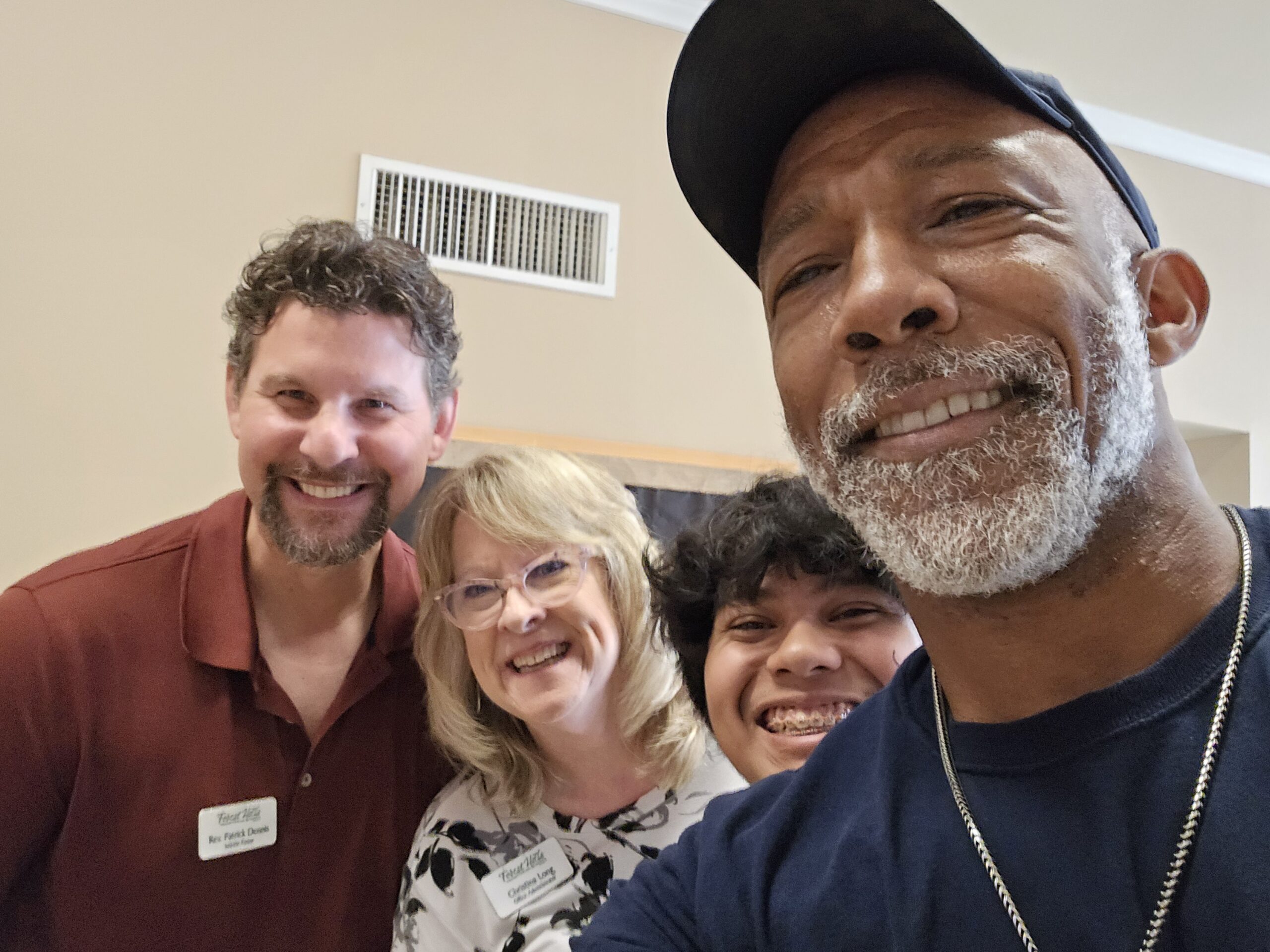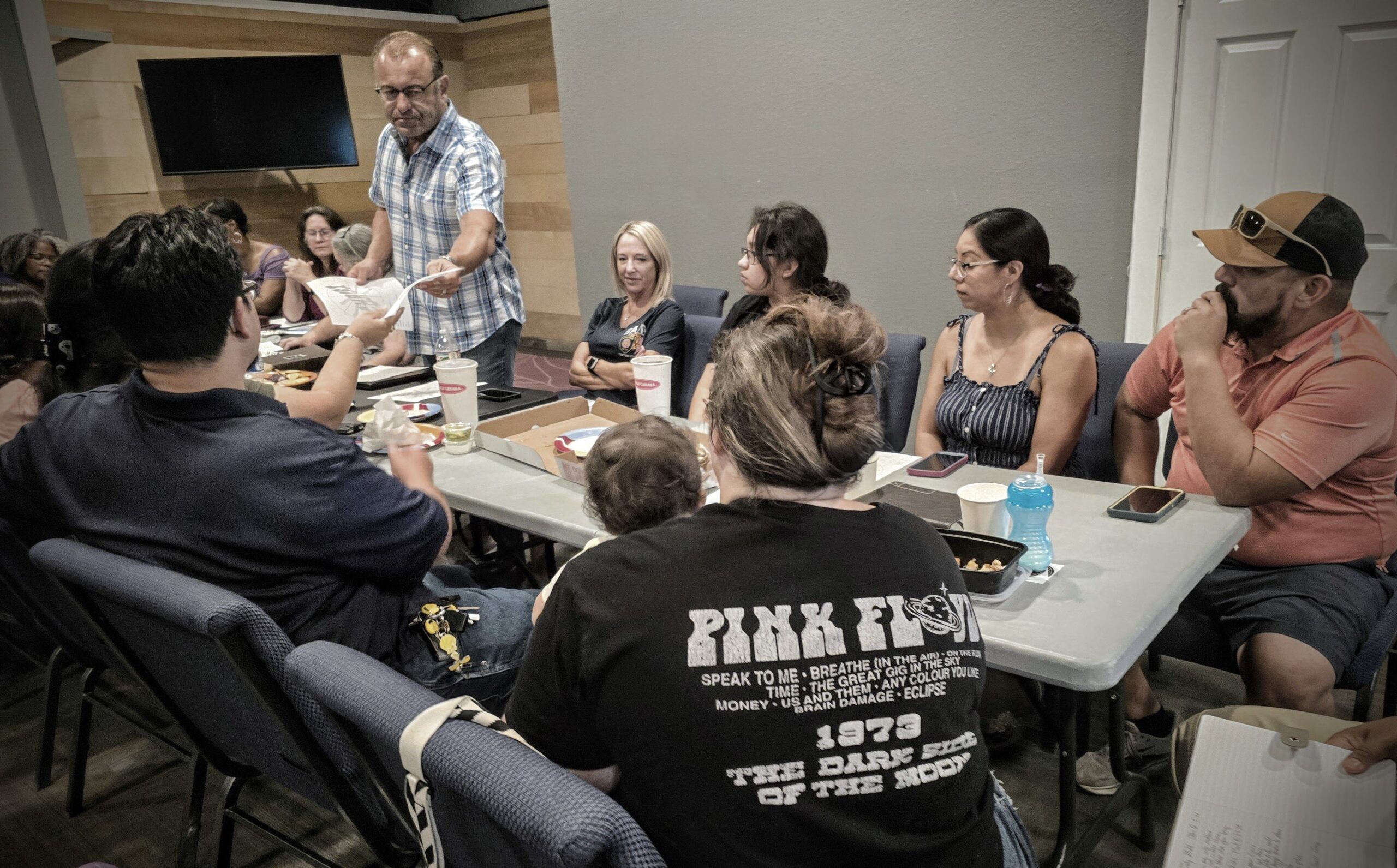Concentrate on the Calling (Acts 6:1-4)
1 Now in those days, when the number of the disciples was multiplying, there arose a complaint against the Hebrews by the Hellenists, because their widows were neglected in the daily distribution. 2 Then the twelve summoned the multitude of the disciples and said, “It is not desirable that we should leave the word of God and serve tables. 3 Therefore, brethren, seek out from among you seven men of good reputation, full of the Holy Spirit and wisdom, whom we may appoint over this business; 4 but we will give ourselves continually to prayer and to the ministry of the word.”
Acts 6:1 The new community has been characterized by unity and sharing (Acts 4:32). In the recent past people that owned land or houses sold them and brought the proceeds to be distributed according to needs (Acts 4:34-35). Out of this generosity the needs of all the people were met — until they weren’t. At some point it became obvious that the distribution stopped being fair. Greek-speaking Jews (Hellenists) noticed that their Greek-speaking widows were neglected in the daily distribution of alms. The Hellenist’s complaint against the Hebrews, a quiet grumbling that eventually erupted in open criticism, was that the Hebrews were only taking care of Hebrew widows; Hellenistic widows were overlooked.
The care of the widows is good. But when the care is not done carefully it can cause hard feelings, discontent, and even division. Although the number of disciples was multiplying not everyone was feeling good about how their fellowship was treating the Hellenistic widows. Can you imagine the complaint?
“Excuse me, Peter, John, and the other apostles. Sorry to bother you guys with this but the Hellenists or Greek-speaking Jews are upset because their widows are neglected by the Hebrews in the daily distribution of alms. That is, when the food pantry or money is given out, the Greek-speaking widows typically get less or are left out altogether.”
The Hellenists were Jews that had been “born outside the Land but had moved into the Land of Israel. These are the Diaspora Jews. Jews from the Dispersion who had migrated back into the Land of Israel” (Fruchtenbaum, 2020). They believed in Yahweh, had practiced Judaism, and had become followers of Jesus. However, owing to their long and multi-generational residence in other countries, they did not speak Hebrew. Does this matter to us today? Let’s talk ministry effectiveness. For those who would serve their subcultures well, it does. Serving your church well means being able to communicate effectively. This is not entirely based on your own ability to articulate the meaning of a passage or lead people in worship. It also means being able to listen well to people that we love when they are in difficult moments. In those moments, if their first language is not your first language, the ministry may be operating below its capacity.
The desire to speak one’s native tongue during times of high emotional is a deeply rooted psychological and cultural phenomenon. This behavior is often seen in multilingual individuals who, despite proficiency in other languages, revert to their first language when experiencing intense emotions such as fear, anger, grief, or joy. For those who would bring excellence to the service of people whose first language is something other than their own, without the ability to speak the language of the people you are serving, things are being missed. Consider diversifying your team. Prayerfully look at adding people to the team that speak the languages of the demographics you are serving. Why?
Psychological and Neurological Factors Favoring Diversity
- Emotional Resonance — The native language, often learned in early childhood, is intricately tied to an individual’s emotional development. Emotional experiences and expressions are encoded in this language. This means that the first langauge is the most natural medium for articulating deep-seated feelings (Pavlenko, 2005).
- Cognitive Load — Speaking a non-native language requires additional cognitive resources, as it involves not just language production but also the management of grammatical structures, vocabulary, and pronunciation. During emotional turmoil, cognitive load increases, and individuals may find it more challenging to maintain fluency in a second language. Reverting to the native language, which is processed more automatically and with less cognitive effort, becomes a natural response. Ministry Relevance: When trying to comfort or counsel someone who prefers to speak in another language, their ability to clearly communicate their perspective may be inhibited by cognitive load. Having someone who can talk with the person in their native language allows them to spend less energy in the mental work of translating their feelings into your tongue and more energy in the effort to be transparent and clear.
- Comfort and Identity — The native language is often closely linked to one’s identity and sense of self. In moments of vulnerability, people tend to seek comfort in familiar cultural symbols, including language. Speaking the native tongue provides a sense of security, continuity, and connection to one’s roots. This can be comforting during distressing times.
Sociolinguistic Perspectives
- Cultural Context — Language is a core component of culture, and expressing emotions in the native tongue allows individuals to tap into culturally specific ways of understanding and articulating feelings. For example, certain emotional expressions or concepts may not have direct translations in other languages, making the native language the most effective way to communicate these nuances.
- Social Bonds — Speaking the native language in times of emotional need can also be a way to strengthen social bonds with others who share the same language. It can signal a need for empathy and understanding from those within the same linguistic community, who are more likely to grasp the emotional subtleties being expressed.
Questions for Consideration
- Can you or anyone in the leadership team of your ministry or church fellowship readily list the ethnic groups you serve?
- How many groups are being served whose first-languages are not represented in the leadership team?
Acts 6:2 The twelve summoned the multitude of the disciples to disclose and direct. Trained by Jesus to lead they recognize the importance of ensuring the participation of the church laity in dealing with difficulty. First, they disclosed their assessment of the situation and how it related to their apostleship: It is not desirable that we should leave the word of God and serve tables. Notice that they did not speak against serving the widows. But they said they should not be the ones doing it. Some will see in their response a condescending attitude toward the needs of the poor. Some will read this passage and get the impression that the apostles believe themselves to be above serving widows. That is not the case. They have been trained to serve (Matthew 20:28; John 13:1-17), charged to serve (Luke 22:26; John 21:17; 1 Peter 5:3), and changed in order to serve effectively (John 14:26; 15:26). And they believe that serving the poor is an important part of church ministry (Galatians 2:10). In seeking to understand the response of the apostles we must prayerfully consider their calling. The apostles were to have a special foundation-laying ministry (Ephesians 2:20) of preaching, teaching, and penning the word. Each of the following passages sheds some light on their decision in this matter:
- Their Call to Preaching was the Main Plan (Mark 3:14) – 14 Then He appointed twelve, that they might be with Him and that He might send them out to preach. This passage makes it clear that from the beginning Jesus had a preaching ministry in mind. Although He did teach them how to serve others in various ways, preaching was foremost among the reasons they were selected and trained.
- Their Call to Preaching was Primary (Acts 5:20; Matthew 10:14) – The angel did not tell the apostles to return to the work of distributing aid to the widows; they were directed to return to the ministry of declaring and teaching the word of God.
- Working with the Word was The Ministry of the Spirit Among the Apostles (John 14:23-26; John 16:13) – The apostles were supposed to teach all things that Jesus commanded (Matthew 28:18-20). The Spirit of God needed to have their undivided attention. As the Helper was bringing to remembrance what Jesus taught them, they could not be distracted by the distribution of alms. Such work could be done by someone else.
Who wants to see the pilot of the airplane coming down the aisle asking if you would like cookies or peanuts? A lot of people can do that job. But flying the plane requires special training and our lives depend on it being done well. We want the pilot to remain focused on flying.
- The Call to Preaching was Personal (John 21:17) – Peter had pledged faithfulness but abandoned Jesus when he was faced with arrest and the promise of brutality. In a painful conversation with Peter the risen Lord both extended forgiveness and defined faithfulness. Jesus made it clear that the past failures were not important; He wanted Peter to go forward loving his Lord by feeding His sheep. And the love language of Jesus was not ambiguous: Feed His sheep, Peter! For Peter the priority of preaching was more than the common calling of Christ on their apostolic band; it was deeply personal to him.
It is with their calling in mind that they must say no to the request for their personal oversight and high participation in the distribution of alms to the poor. They say no in order that they would yes to what matters most – their calling. For the apostles, to personally prevent the problem that has been presented they would have had to take an enormous amount of time away from prayer and the ministry of the word. That would not be desirable; they were called and trained for a ministry of the word. As we consider the response of the apostles we are given a principle for our own day-to-day decisions about what we should and should not do. If we are going to render excellence to God and His people though our living, we do well to keep this in mind:
The Principle of High Quality Production — Excellence is never an accident. In order to effectively bring forth good fruit you must focus. There will be no casual completion of your calling. You must concentrate on your calling and cut out things that you are not called to do (1 Timothy 4:15). Being involved in many good things at the expense of your calling is not desirable to God.
Here is the question, friend: What can I do to become more fruitful in my calling? And here below are three things that will help you get answers and stay in His will.
- Get Clarity on Your Calling (Mark 3:14; Matthew 10:14; John 15:20; John 14:23-26; John 21:17)
- Regularly Review your Reasons (Psalm 1; Joshua 1:8) – Keep your plans for the year in view. Regularly retreat to review these plans and request from God insight into what needs to change. This helps with course correction when we begin to drift.
- Delegate Some Duties (Exodus 18:1-27) – Failure to delegate is the undoing of many. For those of us who want the ministry to grow we must make it a priority to spend time (1) mentoring the next generation, (2) involving other gifted people in the work we do, and (3) casting vision for what will happen with real focus.
Before I was blessed with an opportunity to serve as a pastor at Three Rivers Community Church in Martindale I was a volunteer with a few ministries in San Antonio, Texas. I remember like it was yesterday talking with a friend in the hotel lobby during a break at a winter conference. I was serving as a speaker along with James Mendoza. (Pastor Mendoza is an outstanding leader and teacher at Vista Community Church in San Antonio, Texas.) While at the conference a friend and ministry staff member with the ministry I volunteered with asked if I was going to sign up for another year. As much as I enjoyed serving as a speaker for their conference and for the campuses served by that ministry, I was certain that I would not be going much further with them. Why? Because I was not leading.
And in my home church, although I was asked to serve as a leader of a good ministry in that fellowship, I was certain that I would not be staying. Why? Because I was not teaching. During that same period of time I was also asked if I would lead media ministries for two different organizations. I gave each of them a no. Why? Because if I had accepted those positions I would not be focused in the areas that God has equipped and called me: leading and teaching. Friend, you must stay with what God had called you to do. It is not desirable that you would leave your calling to serve in other capacities. Be undistracted! Some will regard your steadfast decision to be undistracted as an indicator of arrogance. That may be true; you may be arrogant. But don’t be ignorant of the truth about your calling – you need to concentrate on it. Saying no to others is about saying yes to God even more. Or, as is the case with the apostles, your “no” is the outworking of a clarity and confidence about the calling of Christ on your life. Saying “yes” to things that you are not called to do means saying “no” to being truly devoted to your calling.
The Principle of Equal and Opposite Answers — When we are asked to do something, we have to realize that saying yes will always mean saying no to something or someone else.
It is not arrogance or a lack of a servant’s heart that will lead you to turn down an “opportunity” when it means being less available for what God is asking of you.
Questions for Consideration
- Are you being asked to serve in ways that are within your skillset but outside your calling? Jesus had the skills or ability to do a lot of things. But he limited Himself to His father’s business.
- Itemize your duties and things you have agreed to do. Look over the list and identify which items are related to what you are called by God to do. Take a moment to put that list on a separate sheet of paper or in an electronic document. Ask some other godly people if they agree. Let the first person you ask be Jesus. And give Him time to reply. Do not immediately rush off to ask others.
References
Pavlenko, A. (2005). Emotions and Multilingualism. Cambridge University Press.
Notes
In the featured image of this post I am seen with Rev. Patrick (Forrest Hills Presbyterian Church), Christina (administrative assistant), and Joshua (UTSA student and way cool partner in ministry). We were fellowshipping a bit.






